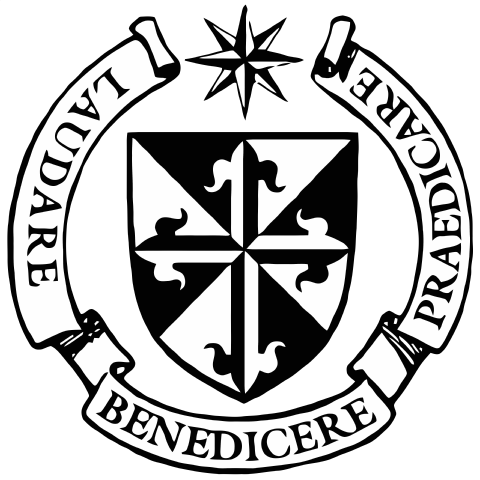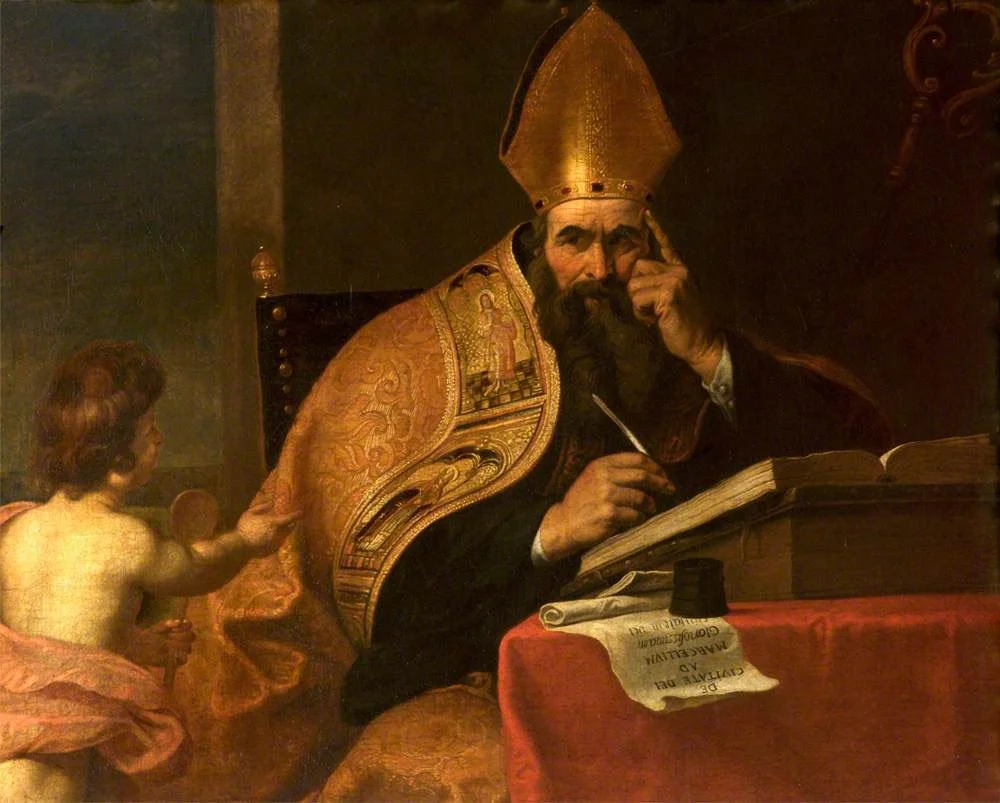Homily for the Feast of our Holy Father Saint Augustine
What does it mean that we call Augustine our father—Holy Father Augustine? The most basic reason is that we’ve made public vows to live according to his religious rule. But Dominic didn’t choose this rule arbitrarily. He himself had lived according to rule of St Augustine as a canon at the cathedral of Osma. One reading of his choice of this rule for the Dominicans, then, could be that it was just the simplest choice because he was already familiar with it—might as well go with the rule he already knew. People sometimes also say that the rule of St Augustine gave Dominic more flexibility than other rules for incorporating the more specific focus that the Dominican constitutions would have. But another possibility is of course that Augustine’s rule is at least partly responsible for the genius of Dominic’s desire to found an order dedicated to preaching for the salvation of souls. After all, this rule was the skeleton, the structure of Dominic’s life as a canon, laying down instructions for his prayer life, his common life with the other canons, and even certain instructions having to do with study. Now if the act of Dominican preaching is meant to flow forth from contemplation, study, and the common life, it’s not a stretch to surmise that Dominic’s initial idea and inspiration for an order of preachers flowed forth from his contemplation, study, and common life. In this sense, without Augustine and his rule for religious, the idea for our order may never have occurred to Dominic.
There are certain things we can see in common between our holy father Dominic and our holy father Augustine: they both had a very deep love for Scripture; their hearts both burned with the love of God; and then of course there’s the preaching. Dominic didn’t have a grand conversion story like Augustine, but he devoted his life to preaching for the salvation of souls, to bring about conversion in the hearts of those who heard him. Augustine, for his part, was surely one of the greatest preachers in the history of the Church. He dwelt in the word of God, and the word dwelt in him richly; he drank deeply from its living waters; he handed on to his flock what he received from the sacred page and from his own profound contemplation of the mystery of God. In at least these ways, the Dominican spirit is born from the spirit of Augustine.
What does this mean for the nuns of the order? Here we can look to the nuns’ constitutions. The very first number after the Fundamental Constitution of the Nuns draws attention to one particular feature of Augustine’s habit of being: “I. As the Rule reminds us, the first reason for which we are gathered together in community is to live in harmony, having one mind and heart in God. This unity transcends the limits of the monastery and attains its fullness in communion with the Order and with the whole Church of Christ. II. The unanimity of our life, rooted in the love of God, should furnish a living example of that reconciliation of all things in Christ which our brethren proclaim in their preaching of the word.” The first reason for our common religious life is unity, to be of one mind and heart seeking God. And this unity isn’t limited to a single monastery, it’s found in communion with the Order and with the Church. This unity in God is a sign and effect of the reconciliation of all things in Christ, which is (or should be!) the thread running through all Dominican preaching. At the heart of it all is the unity and harmony of mind and heart that is the first purpose of the life of the monastery.
Pope Leo is of course an Augustinian, so Augustine has quite naturally been coming up more frequently in his discourses and addresses. He also took his motto from St Augustine: in illo uno unum, “in the One, we are one.” Here too he draws our attention to unity—the unity we strive to live in our religious life according to the rule of Augustine extends to the whole Church. It’s beautiful, then, that we have for our gospel reading a passage from Christ’s high priestly prayer, where he prays to the Father for unity, that they may all be one, even as you, Father, are in me, and I in you, that they may also be in us. The unity we strive for, the unity that is the first reason for which we are gathered together in community, comes only from Christ and his unity with the Father.
Now if you’ll indulge a little early morning philosophizing: unity is included among the transcendentals. Every being that exists, simply insofar as it exists, is one, true, and good. That’s to say that existence itself is convertible with these other properties that are metaphysically basic to every being, namely, unity, truth, and goodness—if a being exists, it’s also essentially one, true, and good. Its oneness, or unity, refers to the fact that every being is undivided from itself—at the level of its existence it’s not somehow metaphysically at odds with itself. This is the case simply because the being exists. But for spiritual creatures such as ourselves, in addition to existing, we also have faculties of intellect and will; and here, interior unity is a bit more elusive, especially after the Fall. It requires the healing touch of grace. One of the effects of sin is to make us divided against ourselves, to distort and invert the harmony that should exist in the interiority of the faculties of our souls. Augustine of course knew this very well; he speaks of it in many different ways as he describes his conversion in his Confessions, his seeking after the truth, even when he recognized that he wasn’t quite ready to accept what he was asking for. But he allowed the grace of Christ to enlighten his darkness, to break through his deafness, to heal him. The same is offered to us again and again, both to heal the interior divisions in our own souls and to tune whatever dissonances may exist in us and bring them into harmony again. It’s Christ who accomplishes this: “we who were far off have been brought near,” brought together, “in the blood of Christ.” The unity we seek, both interiorly and in community, again ultimately comes only from Christ.
And this unity, having come from Christ, in turn reveals Christ. He prays to the Father: “The glory which you have given me I have given to them, that they may be one even as we are one, I in them and you in me, that they may become perfectly one, so that the world may know that you have sent me and have loved them even as you have loved me.” This is another way that the monastic life according to the rule of Augustine expresses and undergirds the preaching mission of the order: by the nuns’ seeking to become perfectly one with and in Christ, others can come to a truer knowledge of the love of the Father for his Son, and in turn to a truer knowledge of his love for all those who are united to him. Being of one heart and one mind seeking God, even within the walls of the cloister, is itself a preaching.
To be called to that life is a gift beyond telling, the only adequate response to which is to let our restless hearts find rest in the Lord, and to let everything we do be done in the name of the Lord Jesus, giving thanks to God the Father through him. Amen.
Fr. Peter Joseph Gautsch, O.P.

